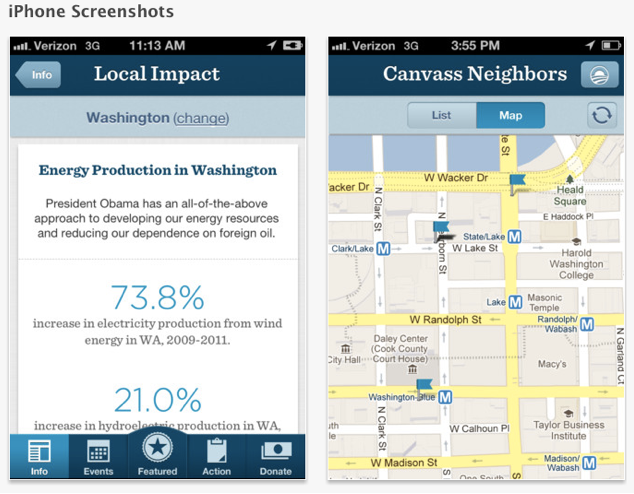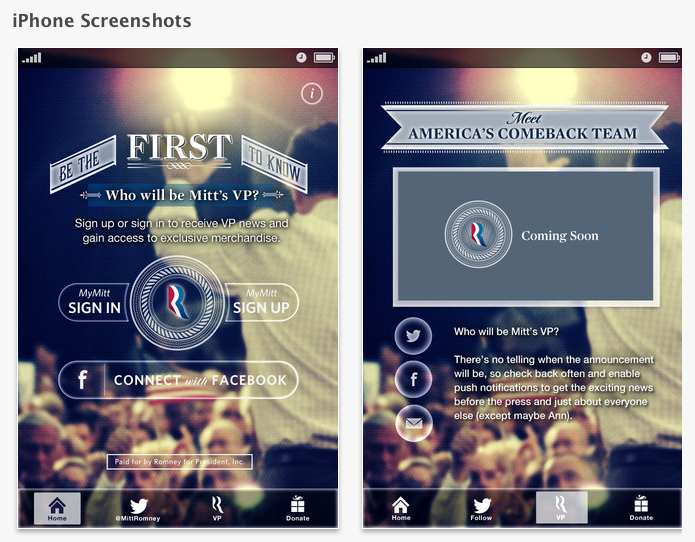How the 2012 Election is Driving Mobile Marketing Innovation
The 2012 Presidential election will be the most expensive in history. According to the New York Times the candidates will raise and spend over $1 billion dollars seeking office. For marketers, this election will yield a windfall of new ideas. Political campaigns are to marketing innovation what big defense budgets are to technology innovation.
As the result of massive advertising budgets, high adoption rates of social media and penetration of smartphones, expect to see groundbreaking innovation in mobile advertising.
Areas to watch:
- Hyper-local targeting – the Obama campaign team has developed an app that links a Google map to the neighborhood volunteers are working. The map contains blue flags at homes to be knocked, including scripts for approaching individual voters.
- Mobile geo targeting – during a concert in Grant Park in Chicago the Romney team placed display ads on smartphones of those concertgoers and others in the vicinity. In TIME magazine recent The Wireless Edition, Patrick Ruffani, the Republican digital consultant said; “We weren’t paying for the entire city.”
- Mobile payments – the Obama team developed a new program called “Quick Donate.” Supporters can contribute repeat donations by sending the number of dollars they want to donate via a text message.
- Social Sharing – Romney’s With Mitt app allows supports to choose from a number of “With Mitt” templates to upload a photo from their phones and quickly share it on Twitter or Facebook.
- Real time data – both camps have apps to enable volunteers to report real time activities and interactions with voters. Vote Builder, the democratic voter database, ensures that no two people are sent to the same address. If a volunteer wants to canvass an area, they can click to download a list of households in their general radius. Phones prompt volunteers to report back their results so that future campaign communications, like DM, can be targeted.
- Engagement – Romney’s campaign team captured valuable information from supporters who downloaded the Mitt’s VP app. The app promised to inform supporters “first” about the vice president pick. Unfortunately, the news media beat them to it, but it will allow Romney’s team to push notifications throughout the campaign to supporter’s smartphones.
With less than 10 weeks remaining in a tightly contested election expect more innovations to come. With over 160 million Americans on Facebook and 53% of mobile phone owners having smartphones today, mobile digital campaigning is changing the way political strategists are engaging audiences and investing advertising dollars.
For marketers, it’s mobile marketing R&D that we could never afford, and will bear fruit for new ideas and campaigns for years to come. Regardless of who wins the election, the real winners from this year’s campaign will be the folks without the billion dollar-marketing budget.









